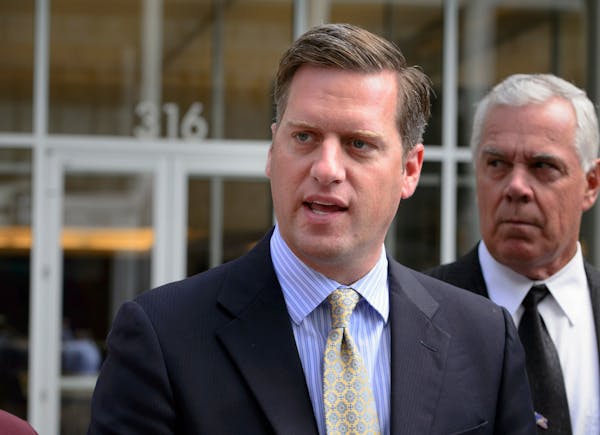The last Republican appointee among the seven justices on Minnesota's Supreme Court will retire in May after 20 years on the job.
Justice G. Barry Anderson notified Gov. Tim Walz of his decision Thursday, hours after hearing oral arguments on an election case. The retirement was not unexpected because Anderson hits the mandatory retirement age for judges in October.
The court did not announce Anderson's decision or issue a news release.
Instead, word came from Walz, who issued a statement of praise saying Anderson had worked "tirelessly to uphold the integrity and fairness of our justice system."
Anderson leaves the court "stronger because of his commitment to the rule of law and the institution itself. As one of Minnesota's longest serving justices, his legacy and work on the Supreme Court will endure for generations to come," Walz wrote.
In his retirement letter to Walz, Anderson wrote that Chief Justice Natalie Hudson had asked him to give remarks on May 10 at the ceremonial induction of new lawyers and that will be his final day. "I cannot imagine a better or more appropriate way to mark the end of my service on the court," Anderson wrote.
Former GOP Gov. Tim Pawlenty appointed Anderson to the high court in October 2004. He was elevated after six years on the state's Court of Appeals, to which he was appointed by former Republican Gov. Arne Carlson in 1998.
He's the second departure from the court in recent months. Chief Justice Lorie Gildea, also a Pawlenty appointee, stepped down Oct. 1. Walz elevated Hudson to chief and appointed his former general counsel, Karl Procaccini, to succeed her as an associate.
Anderson's successor will be the governor's third new appointee to the court. Walz said he expects to open the application process in the coming weeks.
Walz also appointed Justice Gordon Moore in August 2020.
Justices Margaret Chutich, Anne McKeig, Paul Thissen and Hudson were appointed to the bench by former Gov. Mark Dayton.
The justices run for election in nonpartisan races and the Minnesota Supreme Court is not known for a partisan divide. But Gildea and Anderson did on occasion find themselves in a minority of two.
Hudson, Chutich, McKeig and Procaccini are all on the statewide ballot in November.
Secretary of State Steve Simon said Anderson's successor will first be on the ballot in 2026.
Former DFL Senate Majority Leader Kari Dziedzic dies of cancer at age 62

How the Star Tribune is covering the 2024 election

Fact check: Walz and Vance made questionable claims during only VP debate

In Tim Walz's home city, opposing groups watch him debate on the national stage

